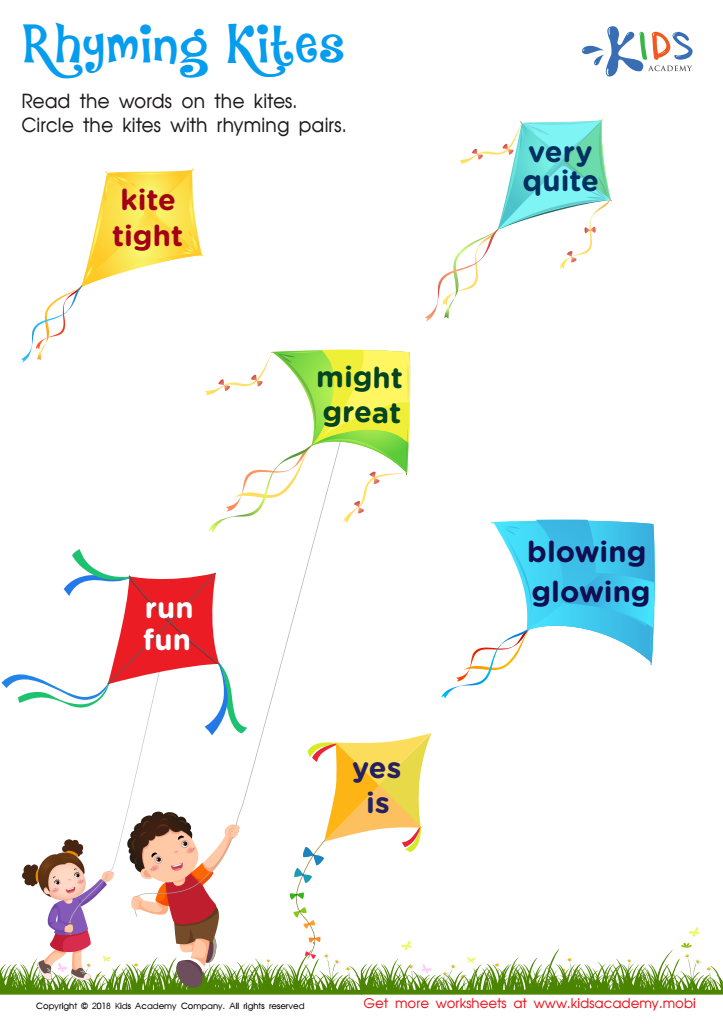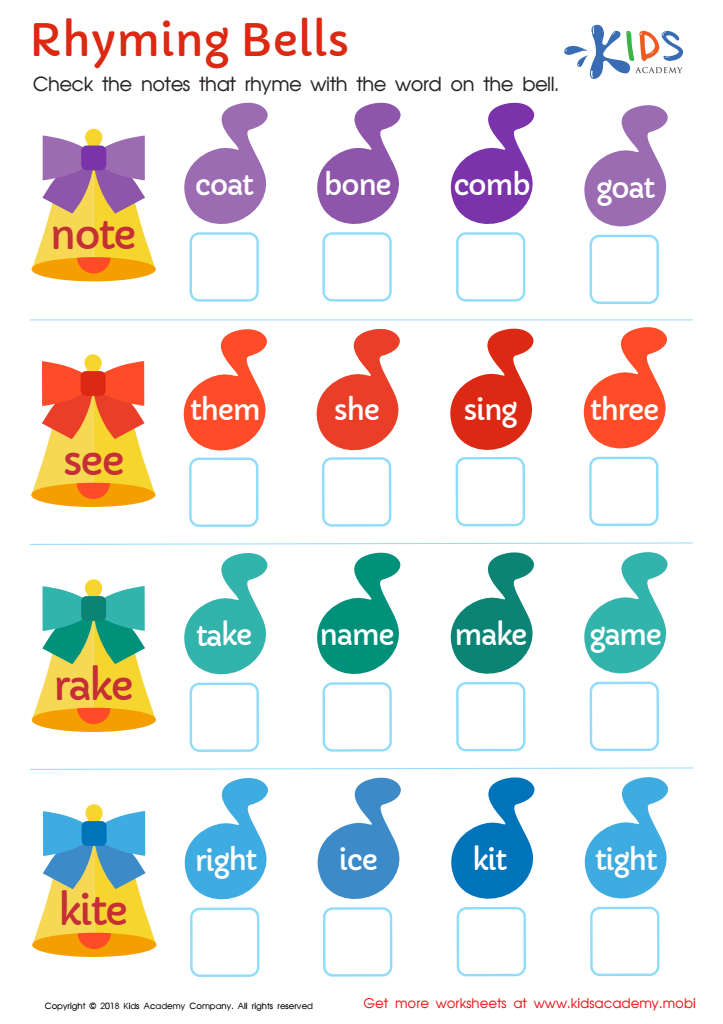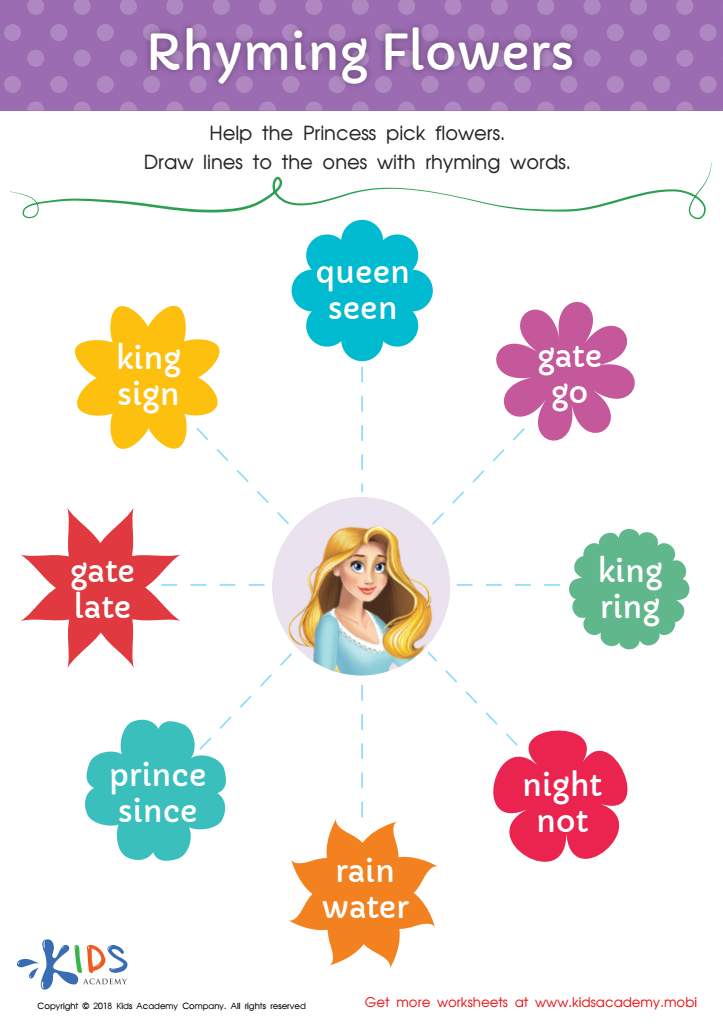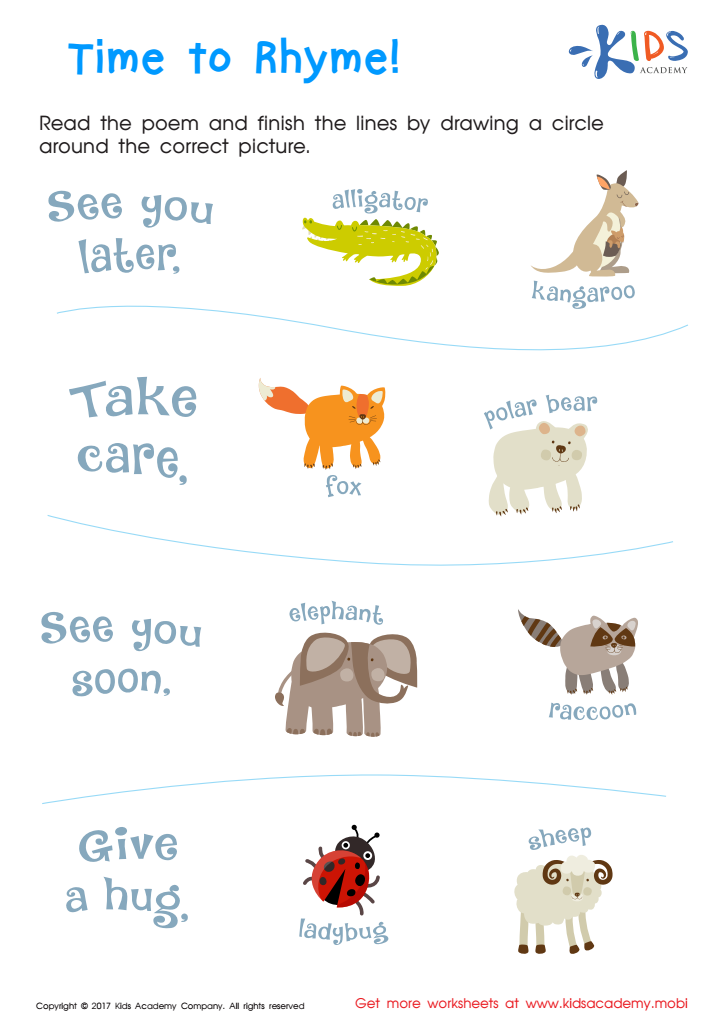Normal Rhyming Worksheets for Ages 4-6
8 filtered results
-
From - To
Introducing our engaging collection of Normal Rhyming Worksheets, meticulously crafted for children Ages 4-6. Foster a love for language and sound patterns through our interactive activities that make learning to rhyme an enjoyable adventure. These worksheets are designed to enhance linguistic skills, phonemic awareness, and vocabulary development in young learners. Dive into a world of fun, creativity, and learning where each exercise is geared towards nurturing your child’s reading and speaking abilities. Perfect for home or classroom use, our Normal Rhyming Worksheets for Ages 4-6 are your go-to resource for setting a strong foundation in the essentials of language arts.


Rhyming Kites Worksheet


Rhyming Bells Worksheet


Rhyming Flowers Worksheet


Rhyming Words: Assessment Worksheet


First Words: Picture Rhymes Worksheet


Rhyming Words Rhyming Worksheet


Time to Rhyme Rhyming Worksheet
Normal Rhyming worksheets designed for Ages 4-6 play a crucial role in early childhood education, offering a foundation for linguistic skills that are essential for young learners. At this developmental stage, children are rapidly expanding their vocabulary and beginning to recognize patterns in language. Normal Rhyming worksheets are particularly valuable because they tap into this natural growth period, making learning both effective and engaging.
The use of rhymes helps children understand phonetic patterns, teaching them how sounds correlate to one another and to written language. This awareness is key to developing reading and writing skills, as it enhances a child's ability to predict and decode new words. For Ages 4-6, who are at the cusp of reading independently, rhyming activities foster a sense of accomplishment and excitement towards literacy.
Moreover, Normal Rhyming worksheets encourage cognitive development through pattern recognition, memory, and auditory discrimination. These skills are fundamental for academic success and are cultivated in a playful and enjoyable manner through rhyming exercises. By associating fun with learning, children are more likely to develop a positive attitude towards education, setting a strong foundation for lifelong learning.
In essence, Normal Rhyming worksheets for Ages 4-6 are an invaluable tool in early education, blending the joy of learning with the development of critical pre-reading skills, making them an essential part of any young learner's educational journey.

 Assign to My Students
Assign to My Students




















